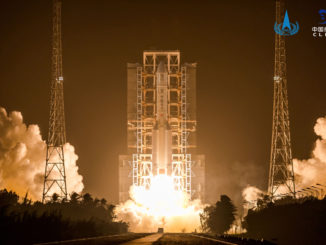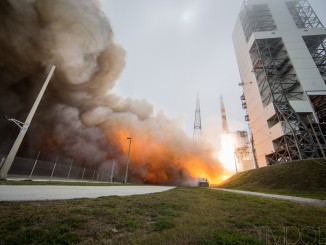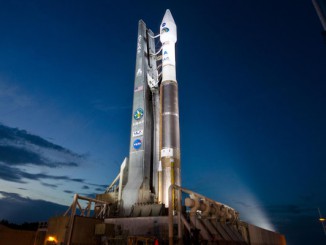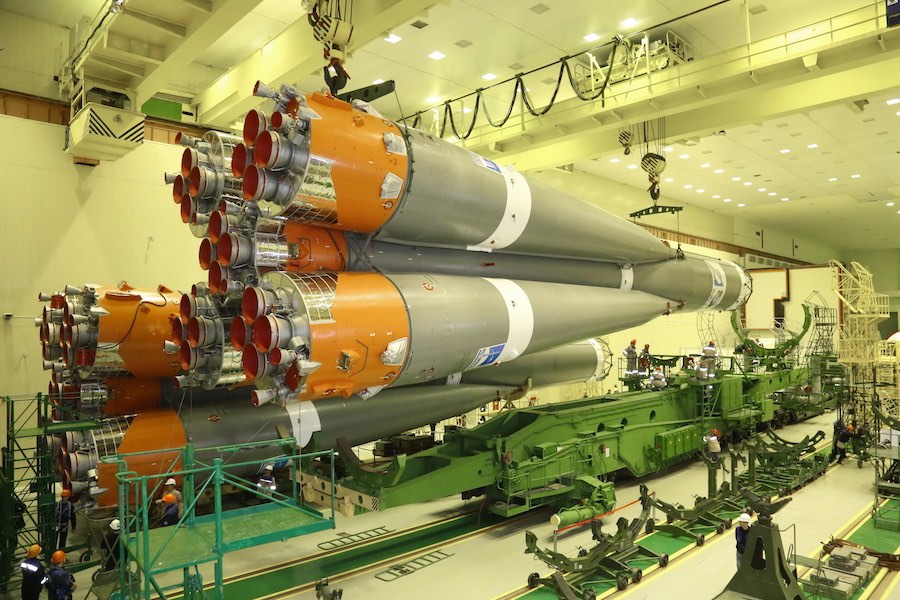
While Arianespace missions from French Guiana have been suspended in response to the coronavirus pandemic, the company says a Soyuz rocket launch from Kazakhstan is set to go ahead Saturday with 34 more OneWeb broadband satellites.
The next crew to launch to the International Space Station is also on track for liftoff April 9 from the Baikonur Cosmodrome, a Russian-operated base on the Kazakh steppe, according to Roscosmos, Russia’s space agency.
But there will be some limits imposed for guests at the historic cosmodrome due to concerns about the COVID-19 viral disease. The Kazakh government announced Sunday that the country’s borders would effectively be closed after authorities there reported eight new coronavirus cases in three days.
The restrictions in Kazakhstan bar entry of everyone except returning Kazakh citizens, diplomats, and people invited by the government.
Roscosmos, Russia’s space agency, said Monday that media visits to the Baikonur Cosmodrome for the next Soyuz crew launch April 9 would be canceled due to the “epidemiological situation” and travel restrictions imposed by the Kazakh government.
Russian space officials said Monday the launch of the Soyuz MS-16 spacecraft will go ahead as scheduled April 9 at 0805 GMT (4:05 a.m. EDT; 1:05 p.m. Baikonur time). Roscosmos said it will provide a live video stream of the launch online, and NASA TV typically broadcasts crew launches.
NASA astronaut Chris Cassidy will join Russian Soyuz commander Anatoly Ivanishin and Ivan Vagner on the Soyuz MS-16 spacecraft, taking aim on the International Space Station for a docking around six hours after liftoff.
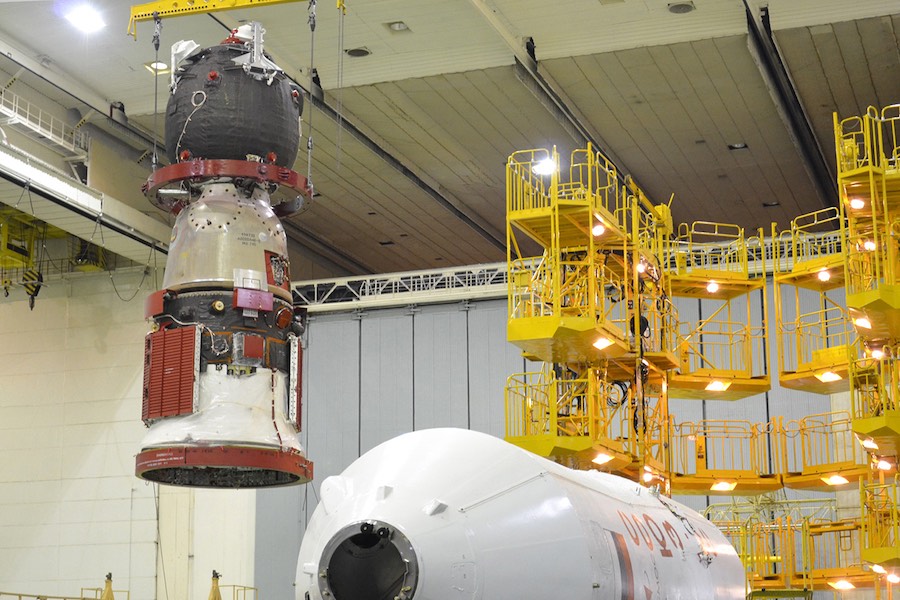
Cassidy, Ivanishin and Vagner will join a three-person crew already aboard the space station for a seven-day crew handover.
Russian commander Oleg Skripochka, joined by NASA astronauts Jessica Meir and Drew Morgan, will return to Earth on April 17. Cassidy will take the helm as commander of the space station’s Expedition 63 crew, and his crew will remain on the space station until October.
During that time, Cassidy, Ivanishin and Vagner will have the space station to themselves, at least until the arrival of SpaceX’s Crew Dragon spaceship with NASA astronauts Doug Hurley and Bob Behnken.
Hurley and Behnken are assigned to the first piloted test flight of SpaceX’s commercial crew ferry ship. The two-man team is training for an extended mission that could last months, but NASA has not confirmed the scheduled length of Hurley and Behnken’s stay on the space station.
Soyuz launches from the Baikonur Cosmodrome take off from Site 31 at the Central Asia spaceport.
Before the crew launch planned for April 9, teams plan another flight from the Site 31 launch facility Saturday with the next 34 satellites for OneWeb’s broadband Internet network.
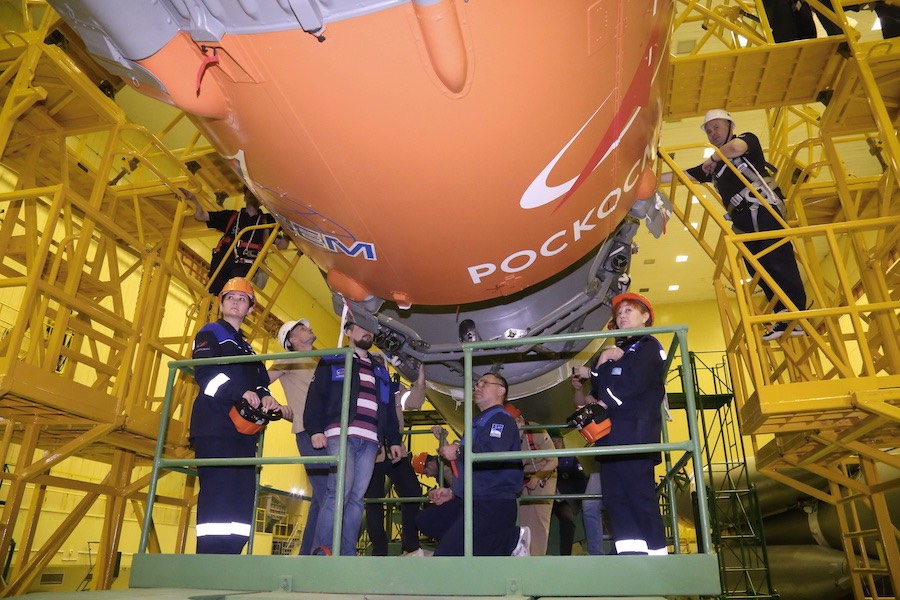
The launch Saturday is scheduled for 1706 GMT (1:06 p.m. EDT; 10:06 p.m. Baikonur time), and OneWeb said it will provide a live webcast of the liftoff.
“We will livestream the launch on our Facebook page so that everyone can watch the event,” OneWeb said in a statement. “We encourage everyone to follow social distancing recommendations and enjoy the launch remotely. OneWeb is taking precautions to ensure the health of our team as they work to ensure its success.”
The 34 satellites are stacked inside the payload fairing of the Soyuz-2.1b rocket awaiting rollout to the launch pad this week.
Technicians inside the Soyuz assembly building — known by the Russian acronym MIK — finished assembling the Soyuz rocket earlier this week.
The 34 satellites were manufactured by OneWeb Satellites, a joint venture between Airbus and OneWeb, inside a factory at Exploration Park just outside the gates of NASA’s Kennedy Space Center in Florida.
Arianespace is managing the launch service for OneWeb.
OneWeb plans to launch around 650 satellites on a series of missions contracted with Arianespace through early 2021 to provide interrupted global Internet service. A batch of six pilot satellites launched in February 2019, and the first full load of 34 spacecraft flew into orbit Feb. 6 on a Soyuz launch from Baikonur.
The OneWeb mission must take off by next Wednesday, March 25, to comply with Kazakh regulations that prohibit launches on northerly trajectories from Baikonur from late March to late August to protect wildlife in downrange booster drop zones.
The next launch of OneWeb satellites after Saturday is planned on a Soyuz rocket later this spring from the Vostochny Cosmodrome in far eastern Russia.
OneWeb is competing with SpaceX’s Starlink network in the market for space-based broadband services. Sixty more Starlink satellites are scheduled for launch Wednesday from the Kennedy Space Center in Florida, a mission that so far has also escaped delays caused by the COVID-19 pandemic.
Email the author.
Follow Stephen Clark on Twitter: @StephenClark1.

